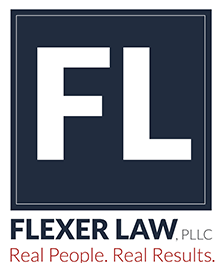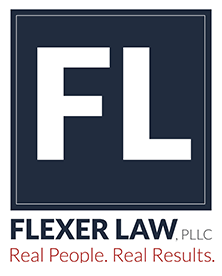
Chapter 13 Bankruptcy Attorneys in Nashville
When it comes to bankruptcy in Tennessee, Chapter 13 serves as a financial reorganization tool for individuals with consistent income who seek to pay off their debts within a reasonable timeframe. Known as a "wage earner's plan," this form of bankruptcy enables you to consolidate and repay your obligations through a structured, court-approved repayment plan over three to five years.
The criteria for the term length depend on whether your income exceeds or falls below the state median. Chapter 13 Bankruptcy is particularly beneficial for those aiming to prevent home foreclosure, as it allows back mortgage payments to be caught up over time.
Additionally, it can halt repossession of other property, allowing you to retain most, if not all, of your assets. Flexer Law's knowledge and experience in this area ensures you receive comprehensive legal representation and the respectful personal support necessary to navigate your way to a fresh financial start.
Discuss your financial situation in a free consultation with a Nashville Chapter 13 bankruptcy lawyer by contacting a team member online or at (615) 805-6374.

Why Choose Flexer Law?
Put 40 Years of Experience On Your Side
-
$0 Down Until You FileWe can help you file your bankruptcy with no money down.
-
Free Consultations AvailableGet started on your case with a free consultation today.
What is Chapter 13 Bankruptcy?
Chapter 13 bankruptcy is a type of bankruptcy designed for individuals with a regular income who need help repaying their debts. This option allows people to create a repayment plan that typically lasts between three to five years, during which they can pay off all or part of their debts. Unlike Chapter 7 bankruptcy, which might result in the liquidation of assets, Chapter 13 allows individuals to keep their property, such as their home or car, while reorganizing their debts.
To qualify for Chapter 13 bankruptcy, an individual must have a steady income and meet certain debt limits set by the court. These limits can change periodically, but they generally ensure that Chapter 13 is used by individuals with manageable debts who can afford to make regular payments. Once filed, the debtor proposes a repayment plan that details how they will pay back creditors. This plan is subject to approval by the bankruptcy court, and the debtor may need to make adjustments if creditors or the court have concerns.
One of the key benefits of Chapter 13 bankruptcy is the "automatic stay" that takes effect once the bankruptcy is filed. This stay prevents creditors from continuing collection actions, such as wage garnishments, foreclosure proceedings, or harassment. The debtor is given the breathing room needed to reorganize and repay their debts under the court-approved plan.
At the end of the repayment period, if the debtor has successfully followed the plan, any remaining eligible debts may be discharged. This means that the debtor is no longer responsible for those debts, providing them with a fresh financial start. Chapter 13 is often a good option for individuals who want to avoid losing their property while making a structured plan to pay off their debts over time.
Ideal Candidates for Chapter 13 Bankruptcy
Those best served by Chapter 13 are usually people with a regular income who face overwhelming debt but wish to avoid the complete liquidation of assets associated with Chapter 7. Specifically, Chapter 13 is well-suited if you have significant equity in a home or other property you wish to protect, as it allows you to reorganize your debt and maintain ownership. Moreover, if you are behind on vehicle payments but can catch up through a structured plan, you will also find Chapter 13 advantageous.
Your Creditors Under Chapter 13
After filing Chapter 13, creditors cannot call you at home or work. They cannot send you letters, sue you, garnish your wages, or seize your property. They must direct all contact with you through your attorney’s office.
Even if you are already being garnished or a judgment has been entered against you, it is essential to know that:
- Chapter 13 stops garnishments
- Chapter 13 stops foreclosures and repossessions
- The IRS can be paid through Chapter 13
- It is possible to substantially lower payments on cars or furniture
How Chapter 13 Works
Chapter 13 puts all your bills into one bill, like a consolidation loan. This is withheld from your paycheck (like your federal taxes) and is then sent to the Chapter 13 Trustee’s office by your employer. Once per month, the Trustee collects the money and sends it to your creditors.
Typically secured debts like your home, car, and furniture bills get paid first by the Trustee as well as other priority debts like taxes and child support. After these secured and priority debts, money is sent to your unsecured creditors.
You have up to five years to pay your Chapter 13 plan. While the unsecured creditors are waiting to be paid, they cannot charge you late charges, penalties, or interest. Unsecured creditors may only get a small percentage of what they are owed.
If you complete your Chapter 13 plan, the balance of what you did not pay is discharged or wiped out. If you have a co-signer on your loans, we can advise you on what happens with them in a Chapter 13 plan.
Employees & Others
You must pay your bankruptcy through a payroll deduction if you are employed. This is not a garnishment, and you cannot be fired or discriminated against by your employer for filing Chapter 13.
Most employers know Chapter 13 and realize it is a federal law. While it is a little more work for payroll, it stops you from being harassed by debt collectors. You do not need to have a regular job to file Chapter 13. You can be self-employed or have income from Social Security, disability, retirement, or other government assistance. The only requirement is that you have a regular source of income.
Mortgage Payments
Homeowners often ask us if Chapter 13 will lower their mortgage payments. The answer is no. The regular mortgage payment stays the same. However, you can catch up on back payments over two years.
For example, if your mortgage payment is $500.00 per month and you are three months behind ($1,500.00), you must still pay the regular mortgage payment of $500.00 per month and add about $65.00 extra each month to catch up on the arrears.
Key Benefit
One of the critical benefits of selecting Chapter 13 bankruptcy is the increased likelihood of retaining your property. Unlike Chapter 7, where property might be sold to satisfy debts, Chapter 13 typically involves restructuring debt to avoid forfeiture of assets.
However, maintaining ownership is contingent on adherence to the payment plan established by the court. Flexer Law ensures that the plan is realistic based on your financial situation so that you can maintain possession of your assets, from your home to personal belongings.


